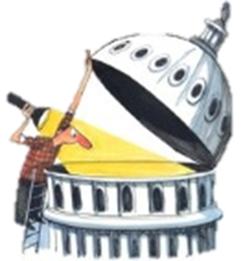Statewide organizations support youth as they appeal TCEQ decision
denying petition to reduce carbon emissions and prevent climate catastrophe
Three Texas youth and one young adult filed for judicial review today of the Texas Commission on Environmental Quality’s (TCEQ) denial of their petition to force action on climate change. Specifically, the rulemaking petition requests TCEQ to require reductions in statewide carbon dioxide (CO2) emissions from fossil fuels consistent with what current scientific analysis deems necessary to avoid catastrophic climate change.
“TCEQ and the Texas government have failed to live up to their responsibility to protect my future and take the urgent action needed to halt climate change,” said 15 year-old plaintiff, Eamon Umphress. “My generation will be hurt the most by climate change, but instead of taking action, Texas is putting short-term profits for corporations above a livable planet for me and future generations.”
As part of the iMatter Campaign, a petition was filed on May 5th in conjunction with legal actions in 47 other states, the District of Columbia, and against the federal government on behalf of youth to compel reductions of CO2 emissions in an effort to counter the negative impacts of climate change that these youth expect to manifest in their lifetime.
The petition relies upon the long established legal principle of the Public Trust Doctrine that requires all branches of the government to protect and maintain certain shared resources fundamental for human health and survival. Science, not politics, defines the fiduciary obligation that the government, as the trustee, must fulfill on behalf of the beneficiary—the public.
“Dr. James Hansen, a prominent and widely respected climate scientist, has warned that our window of opportunity is quickly closing to take serious action to avoid the worst impacts of climate change,” said Tom “Smitty” Smith, Director of Public Citizen’s Texas Office. “Since 1991, TCEQ has had the authority to regulate greenhouse gases but has lacked the political and moral will to do so. The moral failure of the leadership of Texas, particularly Governor Perry and TCEQ Commissioner Shaw, is shameful and betrays future generations. We urge the courts and TCEQ to follow the science and take action to protect the climate and future generations by reducing CO2 emissions now.”
“The Public Trust Doctrine requires TCEQ, as a trustee, to protect and preserve vital natural resources, including the atmosphere, for both present and future generations of Texans,” said Adam Abrams, an attorney with the Texas Environmental Law Center. “TCEQ’s fiduciary duties as trustee of the public trust cannot be disclaimed.”
TCEQ’s decision states that any reduction in CO2 emissions will not impact the global distribution of these gases in the atmosphere. “But as the largest emitter in the United States, reductions in Texas can make a difference in overall reductions,” said Dr. Neil Carman, Clean Air Director for the Lone Star Chapter of the Sierra Club. “Every ton of carbon contributes to global warming, and fewer emissions means less heating in the pipeline and a better chance of reversing Earth’s current energy imbalance.”
“Texas is not only the largest contributor of greenhouse gases in the U.S., the state is also reeling from severe impacts of climate change right now—namely heat waves, droughts, and wildfires,” said Luke Metzger, director of Environment Texas. “The U.S. Global Change Research Program states in its 2009 report, Global Climate Change Impacts in the United States, that with rising high temperatures, droughts and heat waves will become more frequent and severe, and water supplies are projected to become increasingly scarce. Just last month, the federal Department of Agriculture declared 213 counties in Texas disaster areas, due to ‘one of the worst droughts in more than a century.’” Texas has “sustained excessive heat, high winds and wildfires that burned hundreds of thousands of acres,” and many farmers and ranchers “have lost their crops due to the devastation caused by the drought and wildfires,” USDA stated in its press release. “We call on Texas government officials to take these impacts seriously and act now to reduce CO2 emissions from the burning of fossil fuels,” stated Metzger.
To protect Earth’s natural systems, the best available science shows that average global surface heating must not exceed 1° C and concentrations of atmospheric CO2 must decline to less than 350 ppm this century. We are currently at around 390 ppm. To accomplish this reduction, Dr. Hansen and other renowned scientists conclude that global CO2 emissions need to peak in 2012 and decline by 6% per year starting in 2013. The rulemaking petition seeks a rule that would require a reduction of statewide CO2 emissions at these levels. Click here to read Dr. Hansen’s recent paper.
“The Texas government continually claims that any kind of regulation on CO2 is a regulation that would hurt business and the economy. This does not have to be the case,” said Karen Hadden, Executive Director of the Sustainable Energy and Economic Development (SEED) Coalition. “The shift to an economy based on energy efficiency and renewable energy instead of fossil fuels is not only technically but economically feasible, and with the right policies in place, our economy could flourish in new green jobs from this shift. Wind energy is comparable in price to coal and the cost of solar is falling, as San Antonio’s recent investment in a 400-megawatt solar project demonstrates. While touting the possible negative impacts on the economy that reductions in CO2 emissions could have, Texas consistently fails to consider the negative economic impacts of climate change—such as the increased weather extremes of heat waves, drought, and hurricanes—already felt by many Texans.”
“We have a moral duty to provide our children and our children’s children with a livable planet,” said Brigid Shea, mother of 15 year-old plaintiff, Eamon Umphress, and former Austin City Council member. “The Texas government must live up to its responsibility to protect and preserve our planet and our atmosphere. We need to end our reliance on fossil fuels and live as if our children’s future matters.”
###
By promoting cleaner energy, cleaner government, and cleaner air for all Texans, we hope to provide for a healthy place to live and prosper. We are Public Citizen Texas.
Our Children’s Trust is a nonprofit focused on protecting earth’s natural systems for current and future generations. We are here to empower and support youth as they stand up for their lawful inheritance: a healthy planet. We are mothers, fathers, grandparents, aunts, uncles, teachers. We are adults, part of the ruling generation, and we care about the future of our children—and their children’s children. www.ourchildrenstrust.org/
iMatter is a youth-led campaign of the nonprofit group, Kids vs Global Warming, that is focused on mobilizing and empowering youth to lead the way to a sustainable and just world. We are teens and moms and young activists committed to raising the voices of the youngest generation to issue a wake-up call to live, lead and govern as if our future matters. www.imattermarch.org/
Read Full Post »







